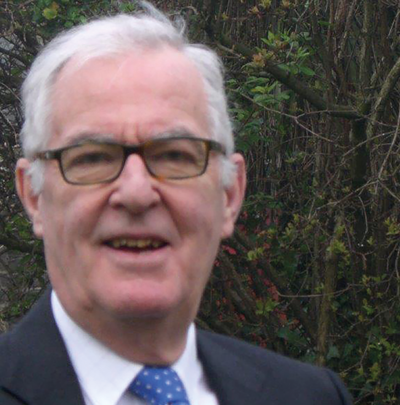Interview: Sir Stephen Oliver QC

Sir Stephen Oliver is the former president of the Tax Chamber of the First-tier Tribunal. He has been an active supporter of the Bridge the Gap campaign since its launch in 2015 and has played an important part in its development. His involvement with the tax charities actually goes back much further.
How did you get involved in the work of TaxAid and Tax Help?
I was a ‘tax judge’ when I first came across TaxAid and, some years later, Tax Help. Two things about them struck me. The first was how competently both charities answered the needs for advice and help for the great range of taxpayers who hadn’t the means to pay. The second was the trust in and respect for both shown by the revenue authorities, who were able to clear up time-consuming and awkward situations, confident that these were being handled with professional integrity by the charities.
For my part, being responsible for the administration of the tax appeals system for nearly 20 years, the intervention of the two charities helped to prevent our lists being clogged up by appeals that were better settled by those charities working with HMRC.
My introduction came from David Brodie, who started TaxAid in the early 1990s. He invited me to come along and listen in to a morning’s session at TaxAid. It was spellbinding. What was remarkable was how quickly the TaxAid representative managed to recognise and grasp each problem and, if needed, get straight through to HMRC and work out a sensible and mutually beneficial solution. Misunderstandings were cleared up. I could hear how the stress and the worry of each client was relieved by the end of their session.
What did you see as the need for TaxAid and Tax Help?
The start of my involvement was a time when penalties for non-compliance had been stiffened up. A result of this was that small defaults could, if left uncorrected, end up with large demands by the revenue authority. There was nothing the tribunals could do. But a careful explanation by a TaxAid representative, for example, often prevented penalties being imposed. What was more, I was able to explain to the administrative staff of the tax tribunals how potential appellants with muddled or seemingly hopeless grounds of appeal might be persuaded that an approach to TaxAid could be more productive than pressing on with a formal appeal.
As a judge, how were you able to help?
One occasion was at the time of the arrival of the Human Rights Act. Article 6 confers the right to a fair trial by an independent tribunal. I spoke and gave lectures at events promoted by TaxAid at the time. Then I became directly involved as a trustee of TaxAid. I attempted to contribute from my own judging experience.
Both HMRC and the tax profession had a common interest in the work of the two charities, which were originally funded entirely by the large firms of accountants and by HMRC. I remained a trustee for ten years, my colleagues being tax professionals and retired members of HMRC.
TaxAid and TaxHelp had operated quite separately until about 2014. They then came together under the umbrella of the Bridge the Gap campaign. Since then, they have shared the administration. I and my colleague Penny Hamilton, who now chairs Tax Help, were able to recruit the support of the lawyer’s side of the tax profession, as well as judges from the Supreme Court and the Tax Courts. We all joined up with the rest of the tax profession to launch and sustain Bridge the Gap.
How do you see the future?
Both charities ‘belong’ to the tax profession in all its manifestations. Their presence and their work provide a real service to HMRC, just as they do to individuals affected by the tax regime and who do not have the resources to pay for help and advice. For the future, I hope that the trust between the charities and HMRC continues to exist. Their quiet and unobtrusive work is a huge and essential support for the tax system.
The first 25 years of Sir Stephen’s professional career were spent at the Tax Bar, as a tenant of Pump Court Tax Chambers. He was knighted for public services in 2007; became judge of the Upper Tribunal and president of the First-Tier Tax Chamber in 2008; and retired from the bench in 2011.
If you would like to become involved in the work of the charities, please contact Alice Devitt at [email protected].
Interview by Alison Lovejoy


